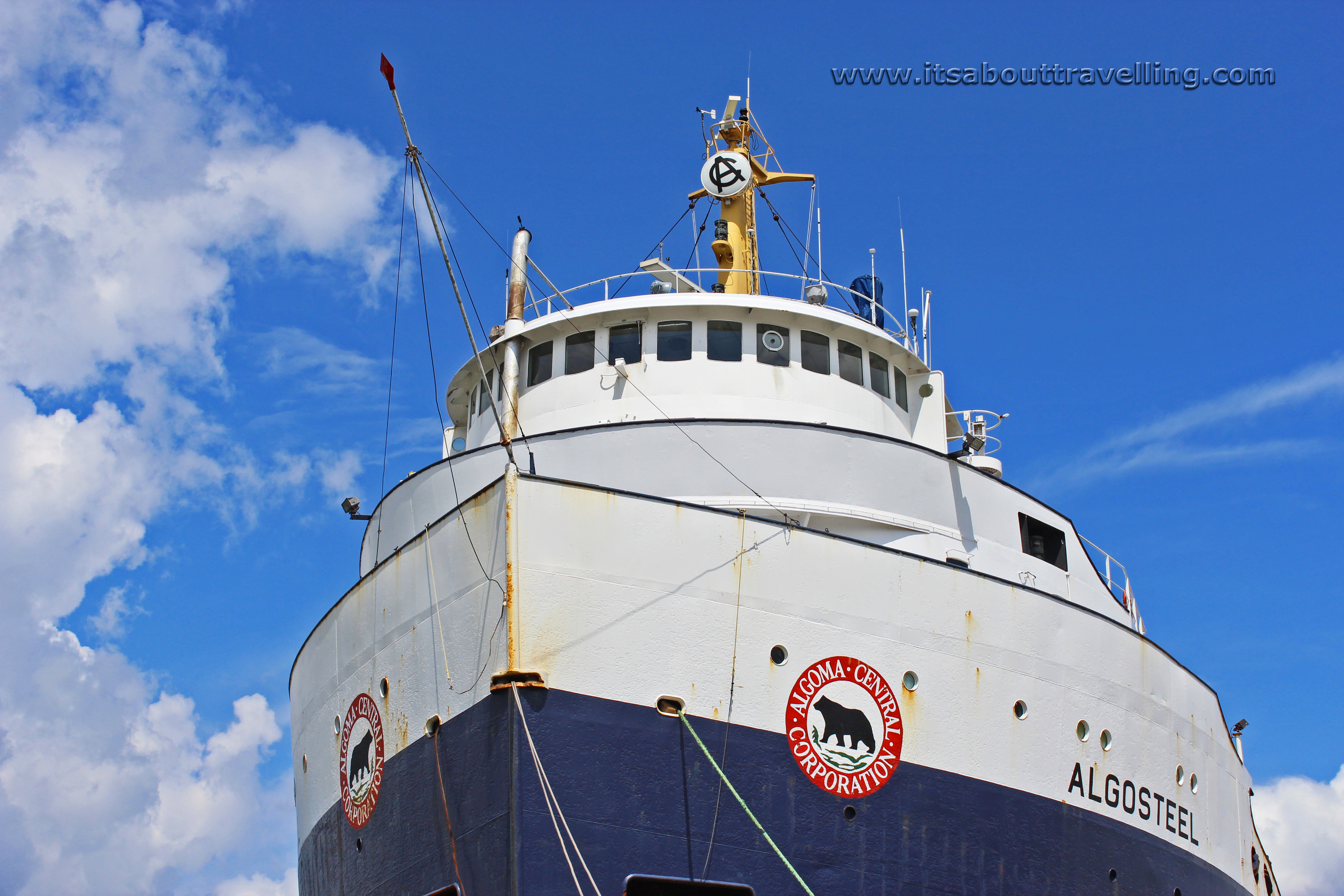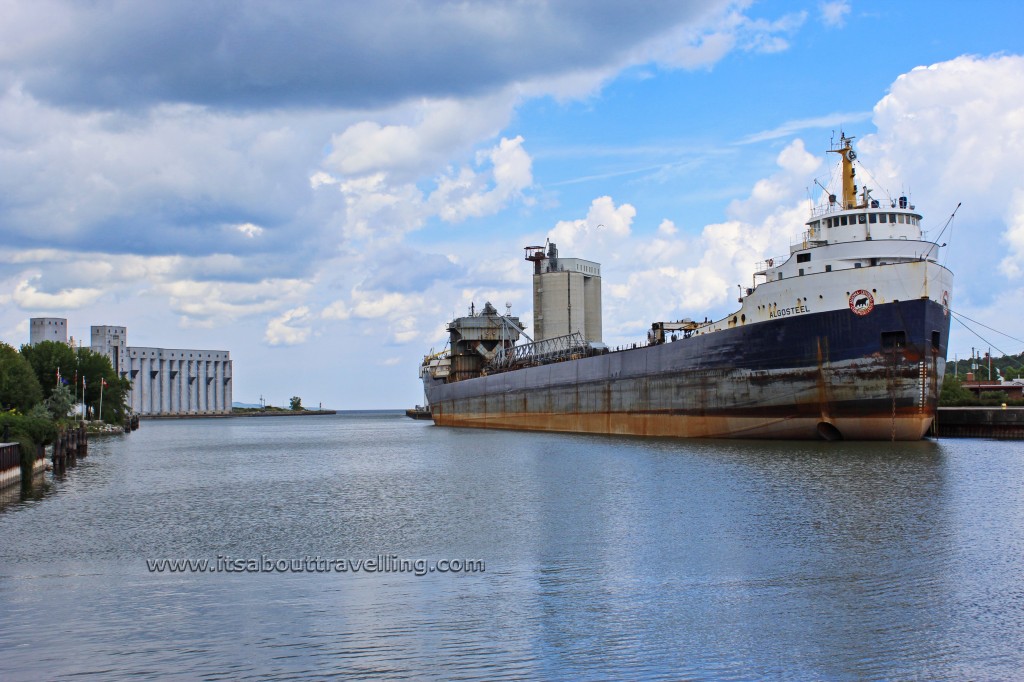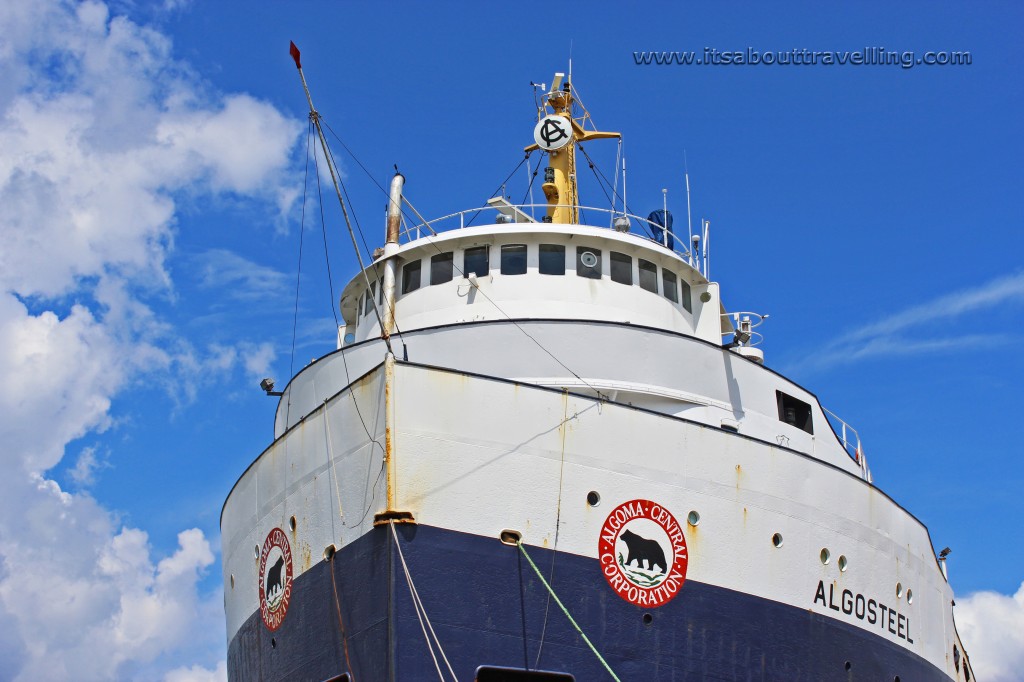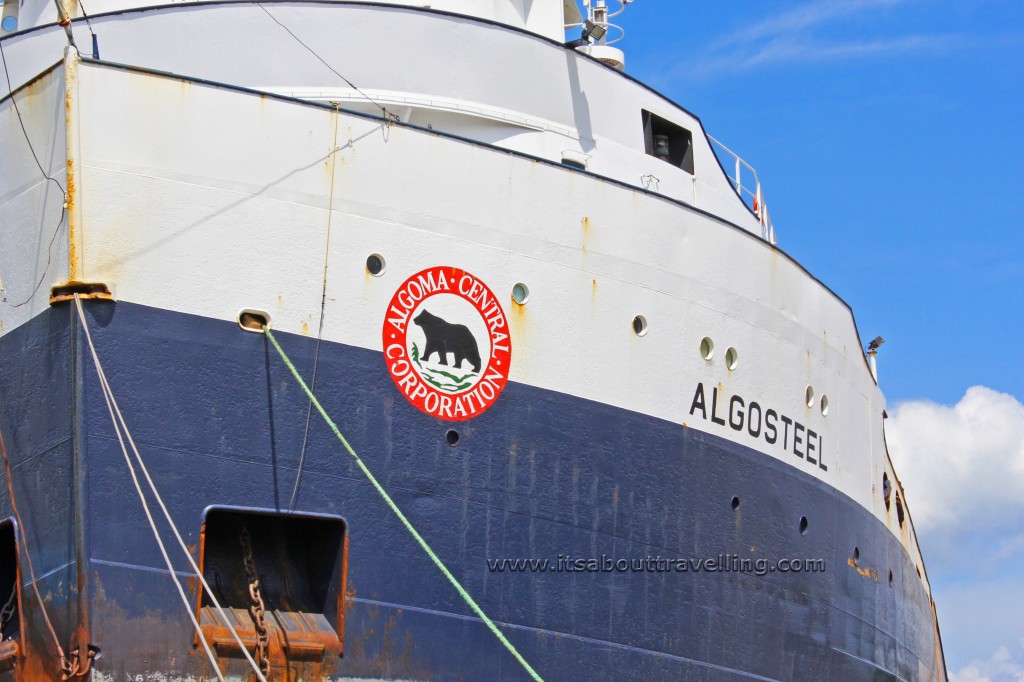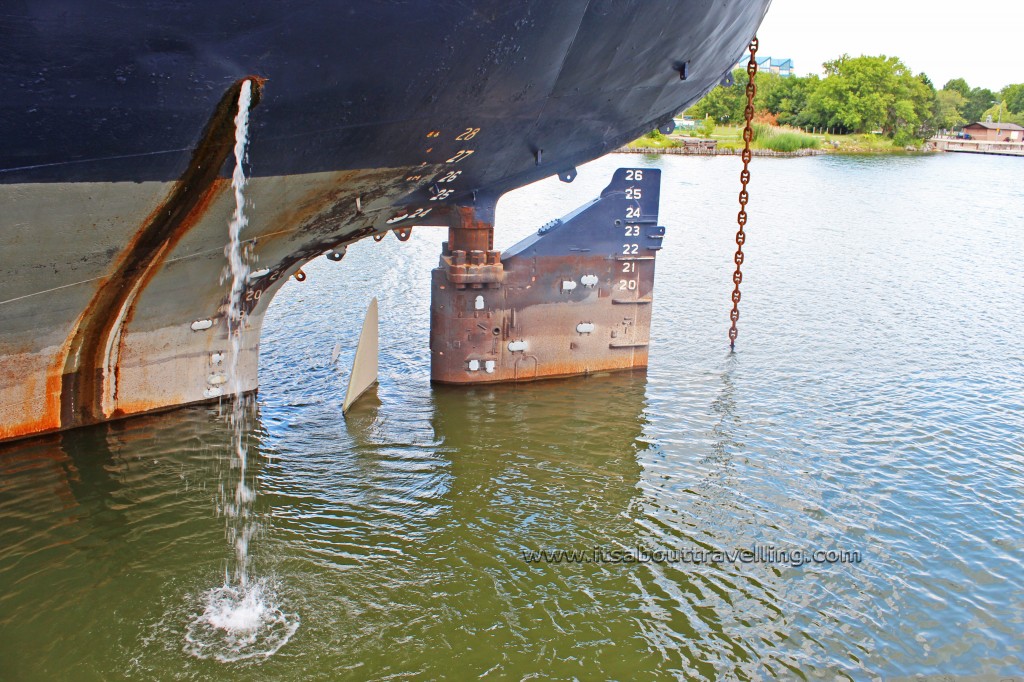Any other mode of transportation in North America, automobiles, airplanes, trains, would be considered classics now if built in 1966. These would mostly be seen in museums or at shows. Not so with Great Lakes Freighters.
Algosteel, a Great Lakes Freighter belonging to Algoma Central Corporation, has been docked in Owen Sound Harbour for most of August, 2013 but is still active. The ship was built in 1966 by Davie Shipbuilding in Lauzon, Quebec for the Labrador Steamship Company of Montreal. Algosteel was originally named the A.S. Glossbrenner. It was renamed Algogulf in 1987 when Algoma Central bought the ship. It became the Algosteel in 1990.
Algosteel in 223 metres or 732 feet long and has a gross tonnage of 18,423. The ship can carry a maximum of 27,000 tons and has a max speed of 12.3 knots.
I’ve been recently pondering if it’s possible to travel as a passenger in North America on a cargo vehicle like a transport truck, cargo ship or a cargo jet (a la Tom Hanks in Cast Away). I’ve got my answer from a long haul trucker that it’s indeed possible but certainly not very popular to hitch a ride on a transport truck. A cargo jet – not likely. A cargo ship – sort of.
Great Lakes freighters can not officially carry paying passengers due to issues with liability and laws regarding onboard medical staff, etc. However, often cruises on these ships are raffled or auctioned off for charity.
Quite recently, a private stateroom on board the Saginaw was auctioned for $6,000. The Saginaw is a popular ship and is involved in auctions often. Typically, the winning bid ranges from $2,000 to $6,000. The Algosteel is not involved in any cruise raffles or auctions but the Algoma Spirit has a raffle on a fairly regular basis.
For a complete listing of all of these raffles and auctions, along with news on upcoming events, check out Boat Nerd.
Owen Sound is a city on the southern end of the same named body of water at the bottom of Georgian Bay. The city has a population of 23,000 and there are about 32,000 in the general area.
Originally dubbed Sydenham back in 1841, it was renamed Owen Sound 1851 and incorporated as a town in 1857. Once the source of 95% of boat propellers of all commercial ships in the Great Lakes, that business dried up and nothing but some of the factory foundation remains. Interestingly, Owen Sound was a dry city until 1972.
Owen Sound Harbour is beautiful and the area is making the transition from being shipping based to being a retirement centre. However, there is a major environmental crisis underway. Due partly to dredging in the St. Clair River dating back to the 1960’s, Lake Huron, and subsequently Georgian Bay, have a consistently decreasing water level.
It doesn’t show in any of the images here, but may be found in the video below, that the city has had to attach extensions on to all the safety ladders along the harbour as the original ladders have become out of reach. We visit areas along the Georgian Bay shore, north of Owen Sound, at Bruce Peninsula National Park. Over the years, spots where we would have had to wade through waste high water are now dry and sometimes up to 50 feet away from the shoreline.
Stop The Drop is a movement to get governments in Canada and the United States to put measures in place to stop the water level from dropping. Sign up for free at the Stop The Drop website and put your name on the petition. Once registered, there is a ton of information on why this is happening and why if not stopped this could become North America’s Aral Sea.
The below HD Video was taken on the same day as the images above. Make sure to switch the quality settings up high and make sure to hit the ‘Like’ button!
